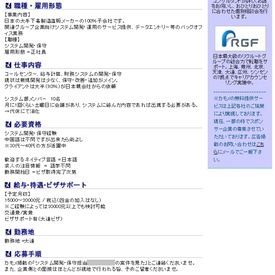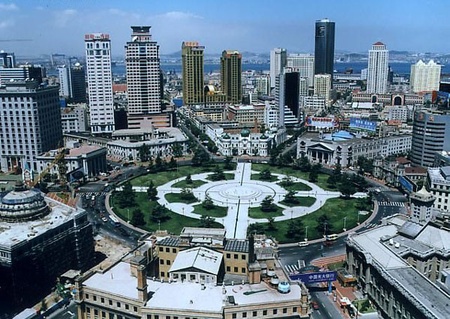Japanese government-led overseas migration of Japanese people is said to have ceased in the spring of 1973, when the last immigrant ship, the Nippon Maru, departed Yokohama bound for Brazil. However, people continue to emigrate to other countries for reasons such as studying abroad, international marriage, and employment. The number of such people is estimated at tens of thousands per year.
What is the situation regarding Japanese people emigrating overseas in Japanese society in the 21st century? While there are people who emigrated overseas to study abroad, like me (I enrolled in a community college in the United States in 2002), there are young Japanese people who emigrated overseas for completely different reasons. The background to their emigration was the social situation in Japan, which was plagued with various problems. What were their reasons for leaving Japan, where did they emigrate overseas, and what kind of lives are they living?
In August 2012, Fuji Television aired a very interesting documentary program. The program, entitled "Goodbye Nippon: The Country Where Young People Are Vanishing," garnered a huge response, despite being aired in the late night hours.

The stars of this show are young people in their 20s and 30s. Their destination was mainland China (People's Republic of China). There, they worked alongside local Chinese in call centers, accounting, website design and production, and even programming, mainly for Japanese companies. They made a living from "business" that took advantage of the local situation in mainland China, where wages are relatively low compared to Japanese society, and the economic disparity between Japan and China.
The main focus of the program was on a man in his 30s. He was what you would call a man of learning, and had a rich educational background in Japan, working hard at his research at a well-known university's graduate school. However, even after obtaining his doctorate and looking for a job, he was unable to find a single job that would recognize his abilities and allow him to fully utilize them, in a Japanese society where only new graduates in their 20s are "worshipped."
While Japanese society has been strong in utilizing unskilled laborers, it has been weak in utilizing highly skilled personnel for many years. The fact that many Japanese companies did not properly value highly skilled personnel like him has led to serious social losses. Currently, some parts of Japanese society are trying to change the way highly skilled personnel are utilized, but the reality is that there are many unknowns about the future.
Having experienced a major setback in his job search in Japan, he did not actively seek employment after graduating from graduate school, and instead worked short-term part-time jobs to make ends meet. However, after a few years, he realized that he could not continue living like this, and after searching for overseas job information, he decided to find employment in Dalian, mainland China. He thought that leaving Japan would bring him a new future.
Compared to Japan, wages in mainland China tend to be cheaper. However, Dalian is one of the leading cities in mainland China, experiencing remarkable economic growth. The situation is different from that of Japanese society, which is in economic decline. Hoping to benefit from this new economic growth, he made a comeback in life in Dalian.
In Dalian, he became the manager of a call center outsourcing business for Japanese companies. He had several dozen Chinese subordinates. Some of his subordinates had studied Japanese at university, while others had studied abroad in Japan. He was trying to find a purpose in life by leading several dozen Chinese who were fluent in Japanese.
Furthermore, his living conditions in Dalian were very different from those he had experienced in Japan. The house the company provided him was a relatively luxurious apartment for mainland China. The rent for this approximately 60 square meter apartment was about 30,000 yen, an amount that would be unthinkable in Japan. He said on the show that he would never again in his life be able to live in such a good condition.
Furthermore, a few years after he began living in Dalian, a major turning point came in his life. He began dating a Chinese girlfriend. If he had not gone to Dalian and continued working part-time in Japan, it may have been difficult for him to find a girlfriend. However, in his new home, he was given the job of a manager, and gradually, he began to have good relationships with people.
While his life in Dalian is sure to attract the envious gazes of many Japanese people, deep in his heart he was feeling a growing sense of anxiety about his future. At the time of the TV interview, he was in a position of responsibility at work, but he was beginning to worry deeply about whether he would be able to maintain that position in the near future. A comment from his girlfriend was the big catalyst for this.
His girlfriend told him that there were many Chinese people in the workplace who could speak both Japanese and Mandarin fluently, so even if a Chinese person became the manager instead of a Japanese person, there would be no problem with the work. She had just been promoted at work the other day. It was obvious that she would earn more than him in the near future.
He was worried that one day he would be overtaken by bilingual subordinates and become useless to the company because he could only speak Japanese properly. If that happened, he might have to return to Japan. However, even if he returned to Japan, would he be able to find a job that he would be satisfied with? He was very worried about how to protect his status in his new environment, and also his relationship with his girlfriend. Whenever she saw him like that, she would try to give him words of encouragement.
Other young people interviewed by the program were also feeling more or less anxious about their futures. Some of them were studying Mandarin for the future. It was also a way to protect their own status in the new world.
In Japanese society, the distribution of wealth does not function properly. A sense of stagnation dominates. Furthermore, the main reason why the young people who were closely interviewed in the program decided to move to Dalian was their deep pessimism about the future of the Japanese economy, which continues to shrink. They made Dalian a new place in their lives, hoping that they would be able to achieve a more prosperous life compared to the economic situation in Japan.
However, although on the surface they have been able to find a satisfying living environment in their new home, such as living in a relatively luxurious apartment, there are many uncertainties regarding their future prospects, and they are being forced to face a new challenge: adapting to Chinese society. It goes without saying that their future lives will be greatly influenced by how they make an effort to learn Mandarin.
What can be inferred from their existence is that although they left Japan of their own volition, behind them lies the serious problem that Japanese society faces in terms of utilizing human resources, and furthermore, the future of the Japanese economy is uncertain, so it cannot be said that they simply chose to emigrate overseas of their own volition, and there are very complicated circumstances behind it. For many Japanese, it is an inconvenient fact, but also a very sad fact, that the decline of the Japanese nation has encouraged Japanese people to emigrate overseas.
reference:
Nominated for the 21st FNS Documentary Awards "Goodbye Japan: The Country Where Young People Are Vanishing" (Produced by Fuji Television) (August 16, 2012, Fuji Television)
Video: " Goodbye Japan: A country where young people are disappearing " (from "Daily Motion")
© 2017 Takamichi Go






